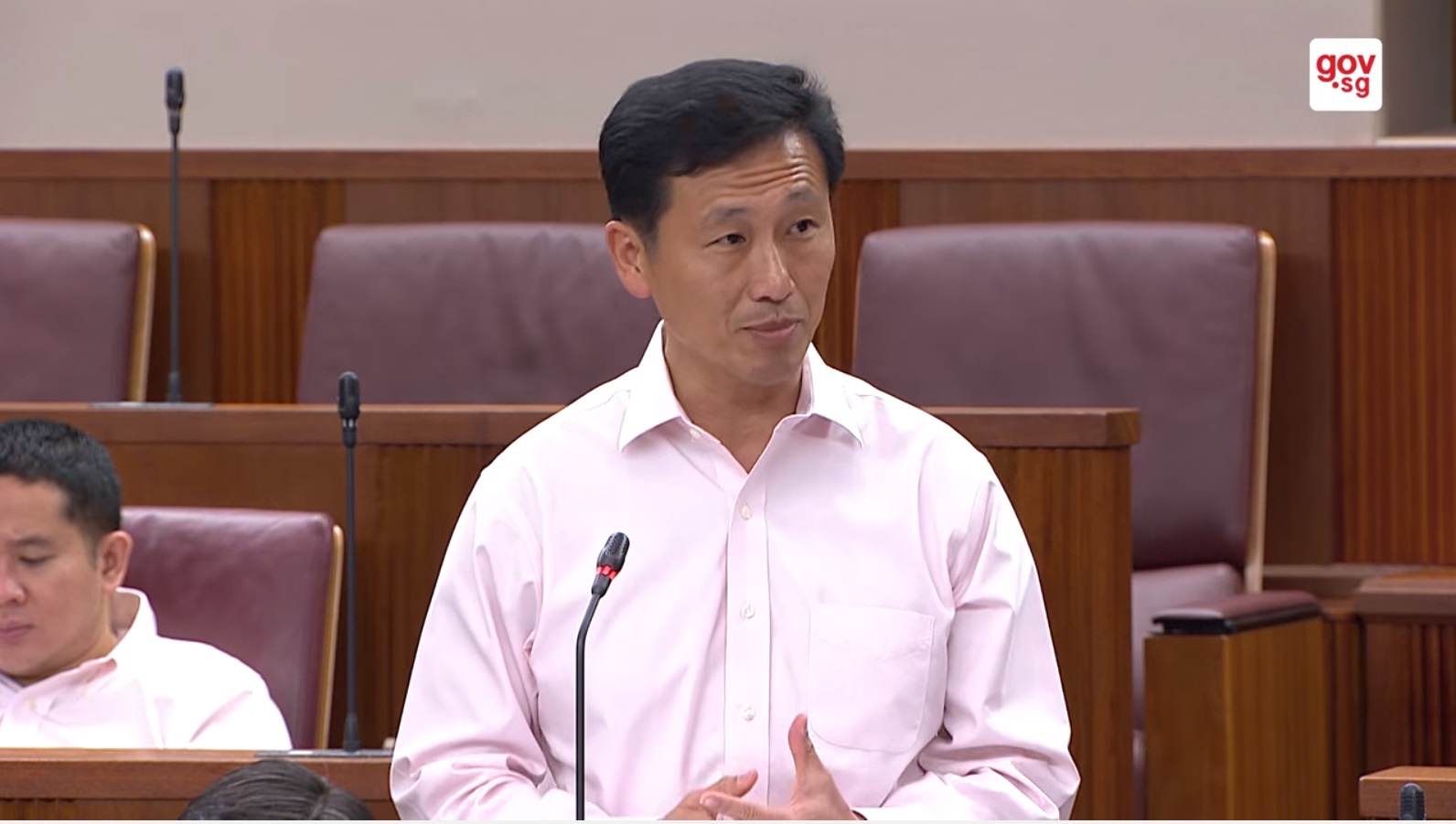Every Singaporean, especially Singaporean parents, has opinions on the Singapore education system and how it can be improved.
The same applies to the civil and public service.
With 145,000 public and civil servants working in Singapore, most Singaporeans have a story or two to share about their encounters with the bureacrats and how things can be improved.
Louis Ng's speech on public servants during Budget 2018
Last Tuesday (Feb 28), Nee Soon GRC MP Louis Ng managed to channel what was perceived -- rightly or wrongly -- by some as the views of junior public servants.
Ng said that they are afraid of speaking up in case they anger their superiors, have their appraisals affected and get passed over for promotion, just because they rocked the boat and upset the status quo.
Ng said his speech was built from candid conversations he had with public servants in closed-door dialogue sessions.
Minister Ong Ye Kung: Generalisations tar entire public service with same brush
Enter Ong, the unofficial defender of other public servants and the public service, and the Minister officially tasked to champion public service innovation.
Ong addressed Ng's points, and said:
"Where the Public Service has fallen short, it will address the problem. But when generalisations that tar the entire service with the same brush are made in public, and worse, further spread through the media, it does not do justice to our officers, it discourages and undermines improvement efforts.
So I say to Mr Louis Ng – be part of the change. Be part of the change. Work with and encourage the Public Service, as it strives to transform itself to build a better future Singapore."
[related_story]
Ong: Change "starts with me"
Earlier in his speech (March 1), Ong said that while Ng may not be aware, the public service is already undergoing a major transformation, an exercise that started in 2012, in order to serve the public better and be ready for the future.
Ong added that the exercise was self-initiated and said that "this deep change cannot happen if the public service does not welcome ideas from its own officers".
Ong acknowledged that there were challenges and obstacles to overcome in the transformation of the public service, and said that "biggest obstacle is ourselves".
Ong used himself as an example, as he reflected about whether he, as a Minister, was "giving policy directions that are bold enough, clear enough, and empowering enough for my staff".
He also said that Permanent Secretary or CEO will have to ask if he or she has built an effective organisation with the right forward-looking culture that can embrace change.
Ong concluded that while Ng is not a public officer, Ng could do his part as an MP and public figure.
Ong voiced his hope that Ng can reassure civil servants who do not dare to speak up by using Ng himself as a role model. After all, Ong said that Ng "have always spoken up and have never gotten into trouble".
And Ong is willing to offer a listening ear for good feedback.
Ong said that if public servants want to make things better, but their immediate supervisor is not supportive, they can inform their Permanent Secretary or the Head of Civil Service; or even have a word with Ong himself.
Ong said that he himself will personally address the feedback if the public servant informs him.
Ng: Well, I got my 360 appraisal review
In response, Ng said that he too, had now received his "360 appraisal review" from Ong.
One of the suggestions Ng made in his speech was to study the 360 appraisal review used by some multinational corporations, such as Google and Alibaba.Such a review allows employees to review and grade their direct managers.
Except that such systems and reviews are already being conducted.
Ong said that all agencies today conduct regular employee engagement surveys.
For instance, there is a regular 360 degree feedback to better develop public service leaders.
The public service also has the public sector transformation awards. The awards recognise officers who display "constructive discontent" -- dissatisfied with the status quo and wanting to do better -- and make the effort to effect change.
Let’s move on
In the end, Ng and Ong are seeing things from a glass half-empty and glass half-filled perspective.
From a glass half-empty perspective, Ng is raising the alarm by mentioning that "this culture of being afraid, of keeping quiet, of not rocking the boat is detrimental to the public service, to any organisation and most of all detrimental to Singapore".
But Ong is not wrong to point out that such challenges occur in "all big and complex organisations", and it's "not just the Public Service, this happens in every organization".
And from a glass half-full perspective, Ong is showing more empathy by arguing that things are improving in the civil service.
However, Ong noted that "when there is a change, there will be those driving it, those supporting it, those worried about it, those wanting change in a totally different direction, and some resisting it".
Anyway, it seems that Ng is now adopting a retreat by thanking Ong and not asking any follow-up questions.
After all, it may not be wise to raise suspicions in Parliament or generalisations if it is just based on a flawed sample size (how many public servants did Ng asked through closed door dialogue sessions?), or a mere honest belief.
" frameborder="0" allow="autoplay; encrypted-media" allowfullscreen="allowfullscreen">
Top photo from gov.sg YouTube video.
If you like what you read, follow us on Facebook, Instagram, Twitter and Telegram to get the latest updates.
